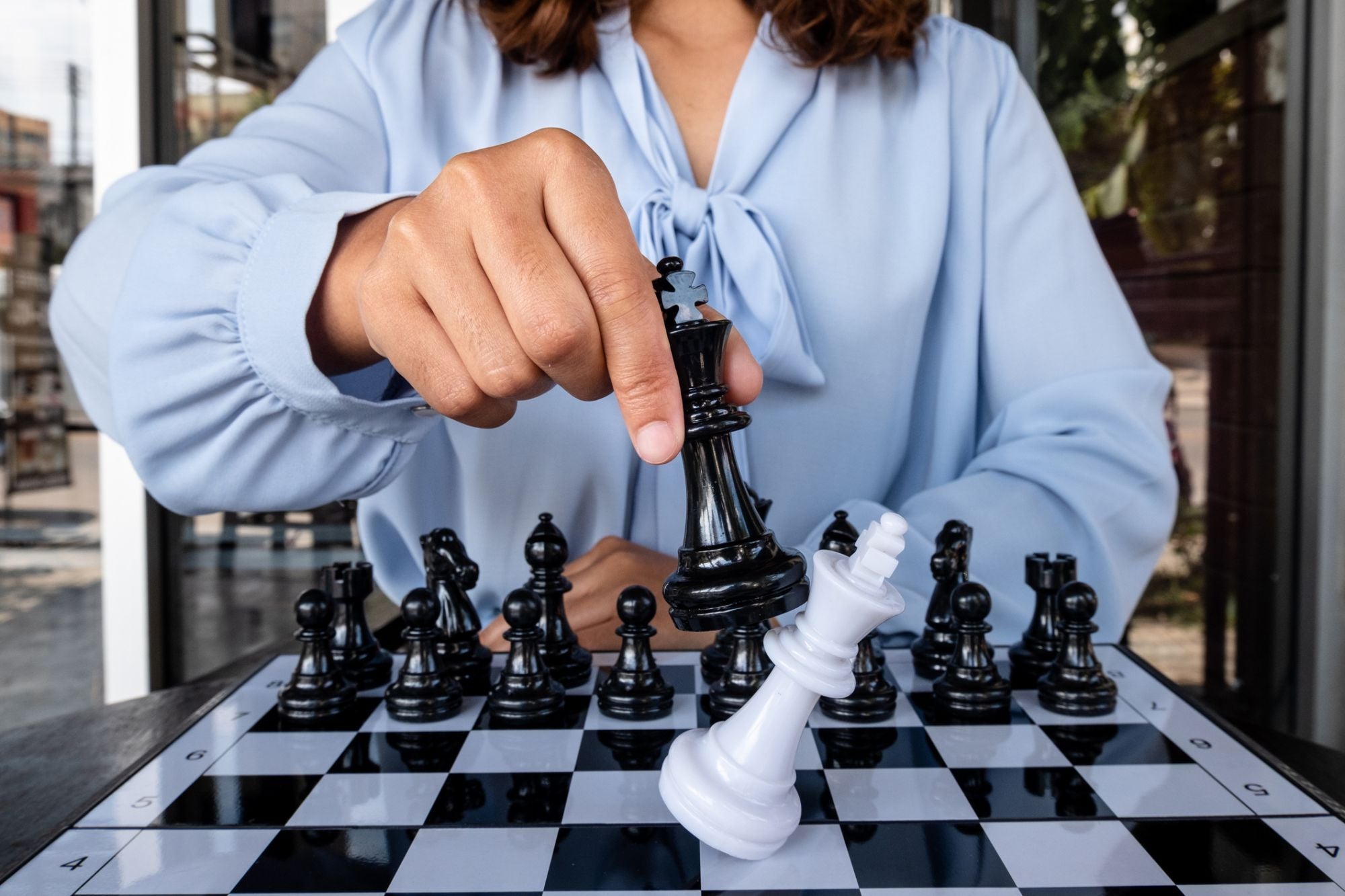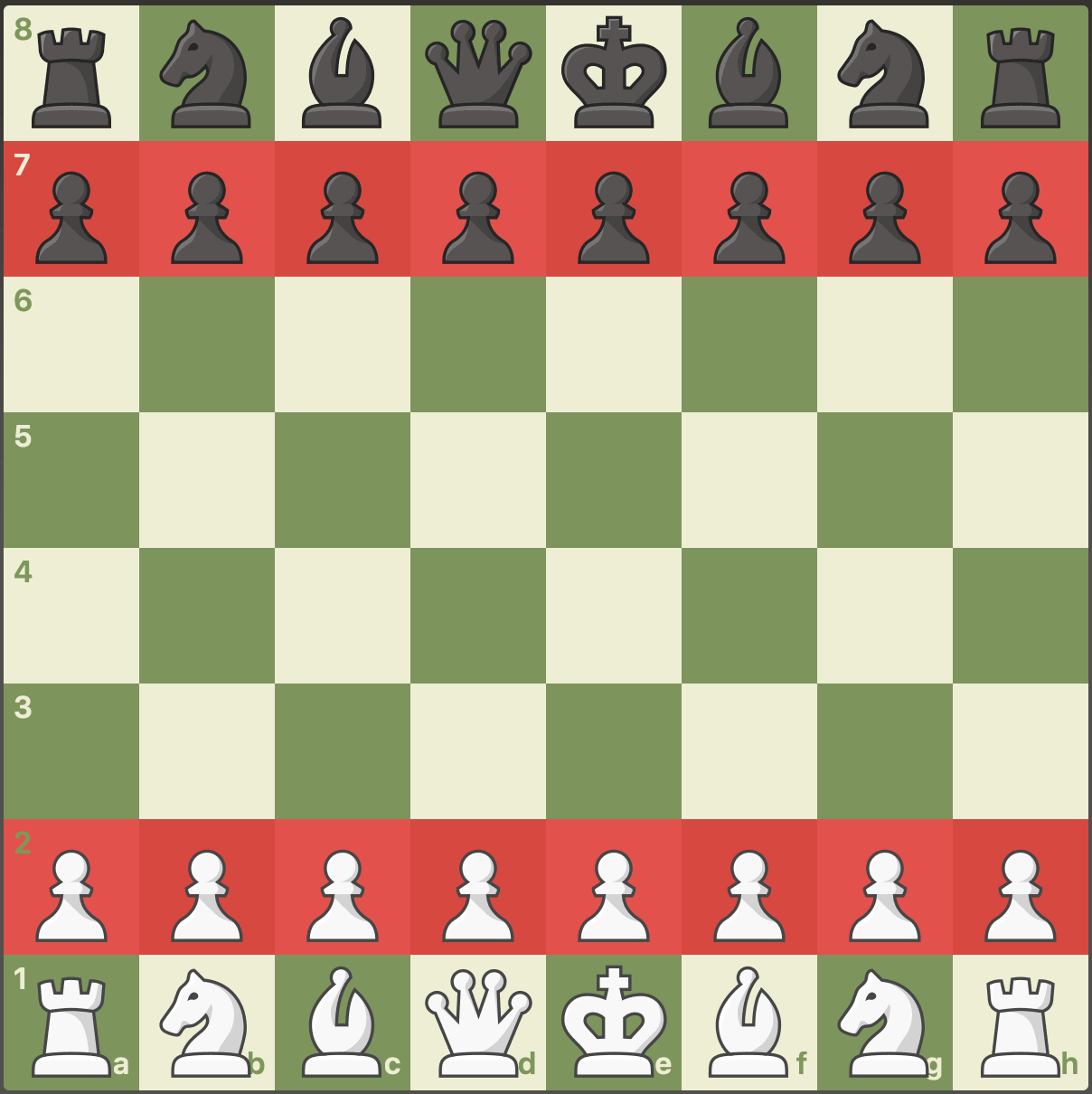Chess in Movies and Books: A Deep Look
Wiki Article
Everything about Chess: Discover the Interesting History and Approaches Behind the Game
Chess, with its beginnings dating back to sixth century India, has actually transformed considerably over the centuries. This game has astounded minds worldwide, showcasing the luster of famous players like Garry Kasparov and Bobby Fischer. Recognizing the ins and outs of chess, from the activities of each item to vital approaches, discloses its deepness. Yet, the inquiry stays: what drives the sustaining fascination with this old game? Discovering its history and methods may discover much deeper insights.The Origins of Chess: A Journey With Time
The specific origins of chess remain unclear, historical proof suggests that the game evolved from earlier strategies played in India around the Sixth century. Called Chaturanga, this early kind of chess included pieces standing for infantry, mounties, elephants, and chariots, showing the army methods of the time. As Chaturanga spread out through profession paths, it adjusted to numerous cultures, causing the production of Shatranj in Persia. This alternative introduced new policies and piece movements, laying the foundation for modern chess.Chess Prodigies: Remarkable Figures in the Game's History
Throughout chess background, remarkable natural born players have actually emerged, shaping the game's landscape and motivating future generations. From famous champions that dominated the boards in their time to modern-day skills redefining the limits of youth and ability, these gamers have actually made enduring marks on the sport. Their tales highlight not only specific luster however also the advancing nature of chess as an affordable endeavor.Epic Chess Champions
Chess has been formed by the brilliance of many famous champions whose contributions have actually left an indelible mark on the game. Figures like Garry Kasparov, recognized for his dynamic design and unmatched critical deepness, dominated the chess globe throughout the late 20th century. Anatoly Karpov, his competitor, showcased exceptional positional understanding and psychological prowess, safeguarding multiple globe titles. Bobby Fischer, an American natural born player, changed chess with his unequaled skill and intense emphasis, culminating in his 1972 World Champion victory. Furthermore, José Raúl Capablanca's all-natural capacity and endgame mastery set brand-new criteria in the early 20th century. These champions not only mastered competition however likewise influenced generations, shaping chess into an international sensation celebrated for its intellectual roughness and artistry.Modern-Day Prodigies
What makes a chess natural born player truly exceptional? The ability to comprehend intricate strategies at an astonishingly young age establishes them apart. Modern chess prodigies like Magnus Carlsen, Fabiano Caruana, and Alireza Firouzja have captivated audiences with their remarkable ability. Carlsen, becoming a Grandmaster at just 13, redefined expectations and rose to Globe Champ status. Caruana, known for his deep preparation and tactical prowess, has actually constantly tested the elite. Firouzja, birthed in 2003, represents the brand-new generation, integrating creative thinking with unrelenting aspiration. These gamers exemplify a mix of natural skill, extensive training, and psychological determination, influencing the game's development. Their payments ensure that chess continues to be a dynamic and vivid discipline, inspiring future generations of players worldwide.Comprehending the Chessboard: Pieces and Their Activities
The chessboard acts as the battleground where complex methods unravel, including an unique set of pieces, each with unique movements and duties. Comprising 64 squares organized in an 8x8 grid, it is home to the king, queen, rooks, knights, diocesans, and pawns. The king, one of the most important piece, relocates one square in any instructions, while the queen, one of the most powerful, can go across any kind of variety of squares vertically, flat, or diagonally. Rooks relocate straight lines, whereas diocesans slide diagonally throughout the board. Knights have a special L-shaped motion, jumping over various other items. Pawns progress one square yet capture diagonally, with the alternative to relocate 2 squares ahead on their preliminary relocation. Each piece's movement adds to the intricate dancing of method and strategies, making the chessboard a dynamic phase for intellectual battle. Understanding these motions is basic for players aiming to navigate the intricacies of the game.
Essential Approaches for Beginners: Tips to Boost Your Game
Mastering the motions of chess items prepares for developing reliable methods. For novices, concentrating on managing the facility of the board is necessary. This enables higher mobility and influence over the game. Developing items early, rather than relocating the exact same piece multiple times, can aid establish a solid position.In addition, gamers need to prioritize king security by castling early, making sure the king is stashed from dangers. Recognizing tactical chances, such as forks, pins, and skewers, can provide benefits in material gain. It is likewise essential to believe in advance; preparing for a challenger's steps fosters much better defensive and offensive play.
Finally, maintaining a balanced approach in between hostile and protective techniques can protect against unnecessary mistakes. By implementing these essential strategies, novices can boost their gameplay and build a strong foundation for future enhancement in chess.
Advanced Tactics: Raising Your Chess Skills
In the domain name of chess, understanding innovative techniques can significantly enhance a player's capacity. Acknowledging tactical patterns, understanding endgame approaches, and comprehending opening concepts are essential aspects that boost one's game. These components not just improve overall performance but also foster deeper critical thinking.
Tactical Patterns Acknowledgment
Identifying tactical patterns is necessary for elevating chess skills to a greater level. Gamers who understand these patterns can determine chances for tactical maneuvers, improving their possibilities of success. Common patterns consist of forks, pins, skewers, and uncovered strikes, each offering calculated benefits when performed successfully. Recognizing these motifs allows gamers to anticipate their opponent's actions and counter them successfully. Furthermore, researching traditional video games can disclose how masters employed tactical patterns to safeguard victories. Regular method and evaluation of one's very own video games can additionally enhance pattern recognition, enabling gamers to respond promptly and properly during suits. Inevitably, developing this skill changes the strategy to chess, bridging the void in between amateur and advanced play.Endgame Techniques Mastery
Efficient endgame approaches can significantly influence the outcome of a chess suit, my sources often figuring out the distinction in between a win and a draw. Advanced gamers understand the importance of item sychronisation and the use of pawns in the endgame. Trick strategies include promoting pawns to queens and developing passed pawns that can advance unblocked. Recognizing critical placements, such as the opposition and zugzwang, is essential for achieving advantageous configurations. Mastery of endgame methods, such as king great site and pawn versus king situations, can turn possible losses into draws or wins. Players need to likewise concentrate on simplifying the placement when in advance, exchanging pieces to transform material advantages right into triumph. Constant method and evaluation of endgame placements will elevate a player's general chess skills greatly.
Opening Concepts Understanding
Understanding endgame methods lays a strong structure for comprehending opening principles. In chess, the opening stage is important as it establishes the stage for the middle game. Chess. Gamers ought to prioritize control of the facility, establishing pieces effectively, and ensuring king security. Reliable openings often involve moving pawns to establish main prominence while collaborating minor and significant pieces for height task. The concepts stress not relocating the same piece multiple times without necessity and preventing very early queen development, which can result in vulnerability. By adhering to these foundational strategies, players can develop a solid framework that enhances their tactical opportunities later on in the game. Comprehending these opening up concepts is essential for raising one's chess skills and achieving success
The Social Effect of Chess: Why It Matters Today
Chess, a game with roots tracing back over a millennium, remains to apply an extensive social impact around the world. It goes beyond plain amusement, functioning as a device for education, important reasoning, and social communication. Lots of universities include chess right into their curricula, advertising cognitive development and calculated thinking amongst trainees. The game additionally promotes inclusivity, combining diverse communities and motivating intergenerational links.Chess has permeated prominent culture, inspiring literary works, films, and even fashion. Iconic figures like Bobby Fischer and Garry Kasparov have actually come to be social symbols, illustrating the game's possibility for personal and nationwide pride. In the digital age, on-line systems have actually further democratized access to chess, making it possible for millions to involve with the game. As society deals with complicated challenges, chess remains pertinent, using lessons in persistence, foresight, and strength, consequently strengthening its relevance in modern culture and daily life.
Frequently Asked Questions
How Has Chess Influenced Pop Culture and Media?
Chess has actually considerably affected pop culture and media, appearing in movies, literary check my site works, and art. It signifies intelligence and method, motivating narratives and characters while promoting themes of dispute, competition, and the human experience.What Are the Advantages of Playing Chess for Mental Health And Wellness?

Are There Various Chess Variations Messed Around the World?
Yes, numerous chess variations are played globally, including Bughouse, Chess960, and Three-check chess. Each variant presents unique regulations and methods, offering gamers with diverse experiences and challenges that differ from conventional chess.Just How Do Chess Engines and AI Influence Modern Chess?
Chess engines and AI substantially boost contemporary chess by supplying innovative evaluation, enhancing player skills, and influencing strategies. They serve as training devices and competition help, transforming how gamers approach the game at all levels.What Prevail Misunderstandings Concerning Chess Athletes?
Usual misconceptions about chess gamers consist of the belief that they are all withdrawn wizards, exclusively concentrated on method. Chess. Actually, players vary significantly in character, background, and approach, usually appreciating social interactions and diverse rate of interestsReport this wiki page